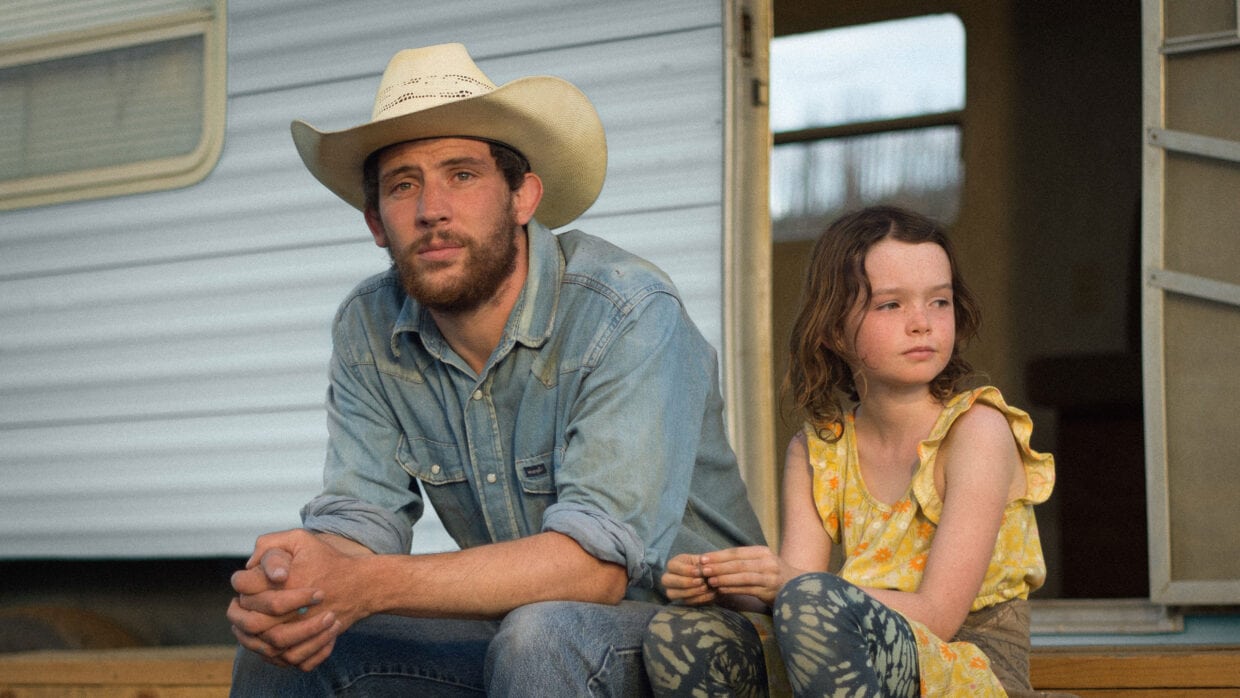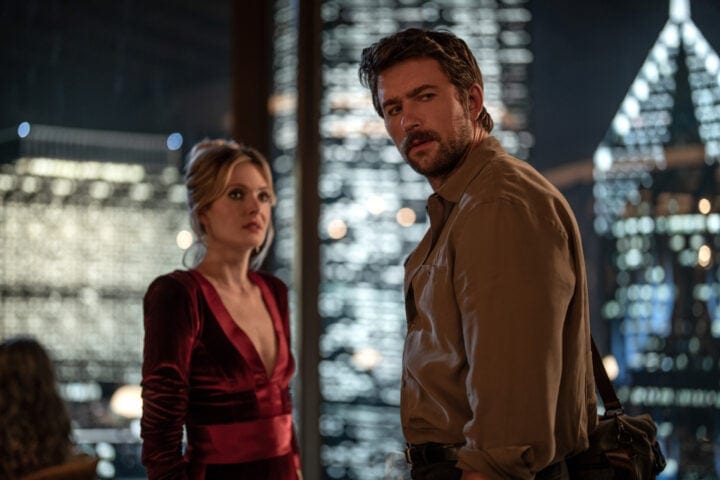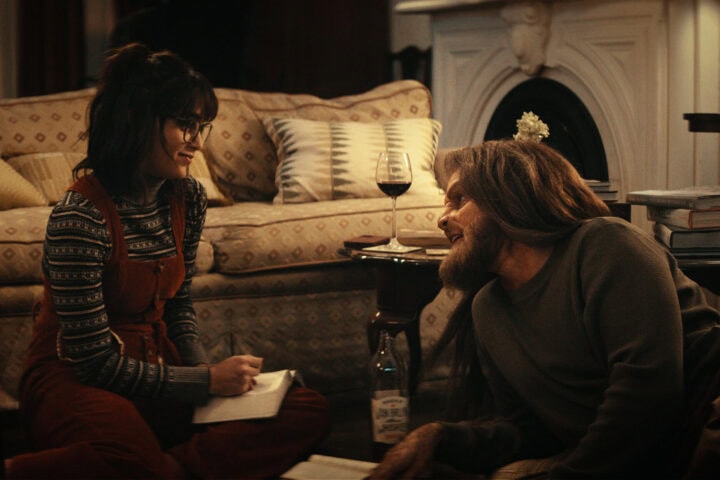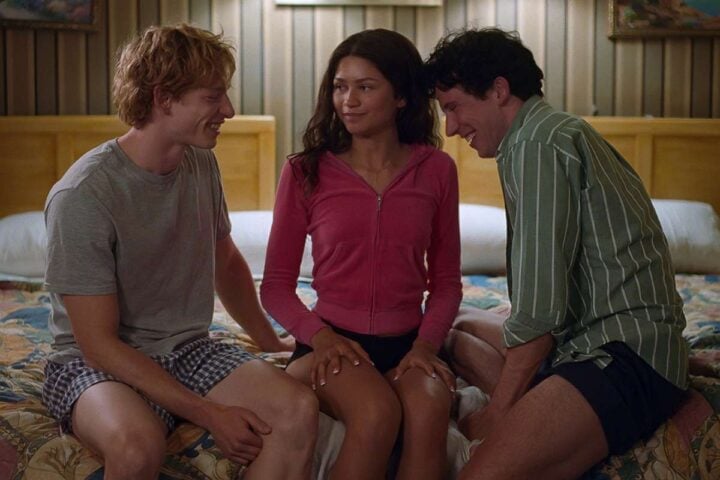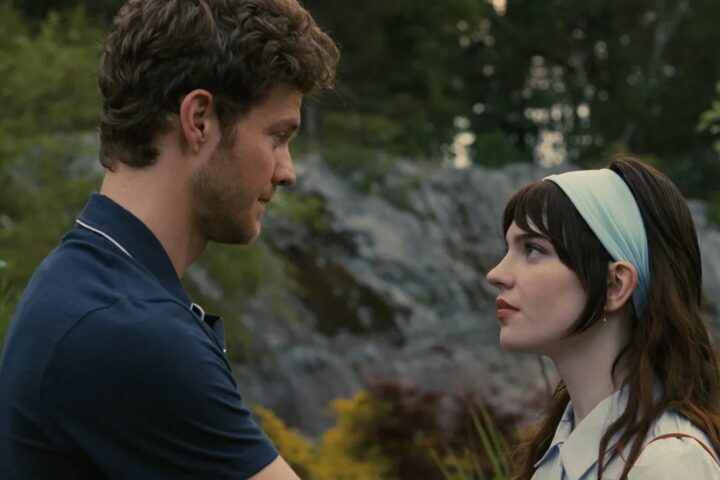The opening frames of writer-director Max Walker-Silverman’s sophomore feature, Rebuilding, provide a brief, abstracted flash of the fire that subsumes the Colorado countryside before smashing immediately to the hollowed-out ashen husk left behind by the blaze. As indicated by the title, the film dwells not on that calamity but on the prolonged recovery process. But rebuilding, by Walker-Silverman’s measure, is notable not just as an extension of tragedy. It’s a natural resting position for humanity in a time of constant upheaval.
“There are things we lost that I’ll never remember,” rues Josh O’Connor’s forlorn Coloradan cowboy Dusty at a communal dinner. While the taciturn rancher sees countless signs of the destruction marking his property, the loss of what he didn’t even realize was already gone takes the greatest psychic toll. In Walker-Silverman’s incarnation of the West, the endless possibility of the frontier has subtly dissipated into the finitude of American entropy.
Notably, a familial memento that holds a special place in Dusty’s imagination is a photograph of his Scottish grandparents. In his sparsely decorated FEMA-provided temporary trailer, he sticks this photo of these immigrant farmers on a cabinet for consistent visibility. There’s a connection to their westward direction journey as Dusty mulls heading to Montana for his only real work prospects. But it’s the magnitude of their life upheaval to try and start anew—and a commitment to doing it together—that beckons to his weary soul. To rebuild and return the land to its previous state now requires an effort akin to building from scratch.
Stasis often proves anathema to cinematic narratives, but Rebuilding captivates as it finds contentment sitting in the silence and stillness of a scene. The ranch represents something more than its economic potential, which is all that the banking system can see in the wake of a high-severity fire. It’s a place to which Dusty feels a bodily connection, especially with his parents residing in the ground itself following their burials in the family plot.
If there’s any sense of motion in the film, which is largely defined by its patient camerawork and editing, it’s in Dusty’s gradual recognition of and response to the emotions that accompany his corporal yearning to remain in place. His entire life serves as an unintended monument to the inability to firmly sever ties with anything. Improbably, Dusty remains so beloved by Bess (Amy Madigan), the mother of his ex-wife, Ruby (Meghann Fahy), that she still holds onto his family heirlooms out of affection. That indecisiveness leaves him as unsettled as the scorched earth surrounding him, with neither evincing clear signs that growth is inevitable.
Dusty’s journey, as conveyed by O’Connor’s subdued but sensational performance, isn’t defined by where he goes or what he does. “That’s not who I am,” he says, responding to the idea of doing highway work to make some money. His identity is fixed to the places and people who provide him with purpose and belonging. Rebuilding finds great power in flipping the mythology of the cowboy archetype on its head. Here, the possibility for renewal, not the obsession with forging ahead with the new, proves more sustainable to Dusty’s sense of self. The physical frontier is bound by geography, while the emotional frontier is inexhaustible.
Dusty refocusing his attention on these sources of pride, especially his chatty and curious daughter, Callie-Rose (Lily LaTorre), isn’t a retrenchment by the calculation of Rebuilding. By seeking reconnection with her in anticipation of his potential absence, Dusty comes into closer contact with the neighbors at his campsite, especially the similarly weathered Mila (Kali Reis). Community ties are forged between these refugees in their own land, and it forces Dusty to take a more expansive view of family until he must reconstitute it altogether.
A moving spirit of simplicity and sincerity animates Rebuilding, though this disposition can sometimes feel like a self-imposed ceiling that limits its range of expression by steering the story in a pat, palatable direction. Nothing in Walker-Silverman’s film, though, betrays the rugged reticence of Dusty as poignantly realized by O’Connor’s fully embodied and felt characterization. Their portraiture of a remade cowboy slowly reveals itself as a landscape of a people. It’s a touching testament to how barren, bleak terrain can blossom when refreshed by those recommitted to upholding the legacy of the land—no matter what nature has in store.
Since 2001, we've brought you uncompromising, candid takes on the world of film, music, television, video games, theater, and more. Independently owned and operated publications like Slant have been hit hard in recent years, but we’re committed to keeping our content free and accessible—meaning no paywalls or fees.
If you like what we do, please consider subscribing to our Patreon or making a donation.

